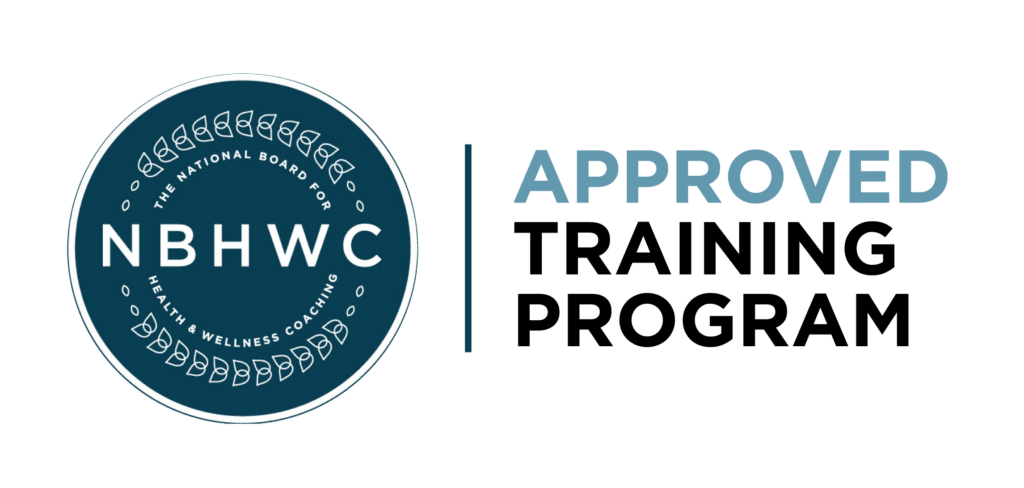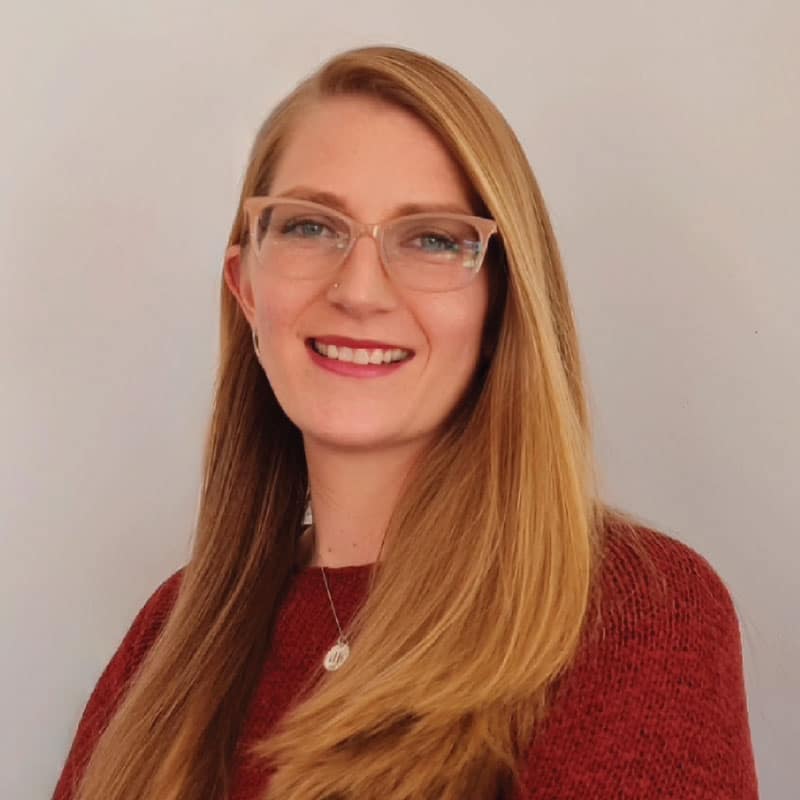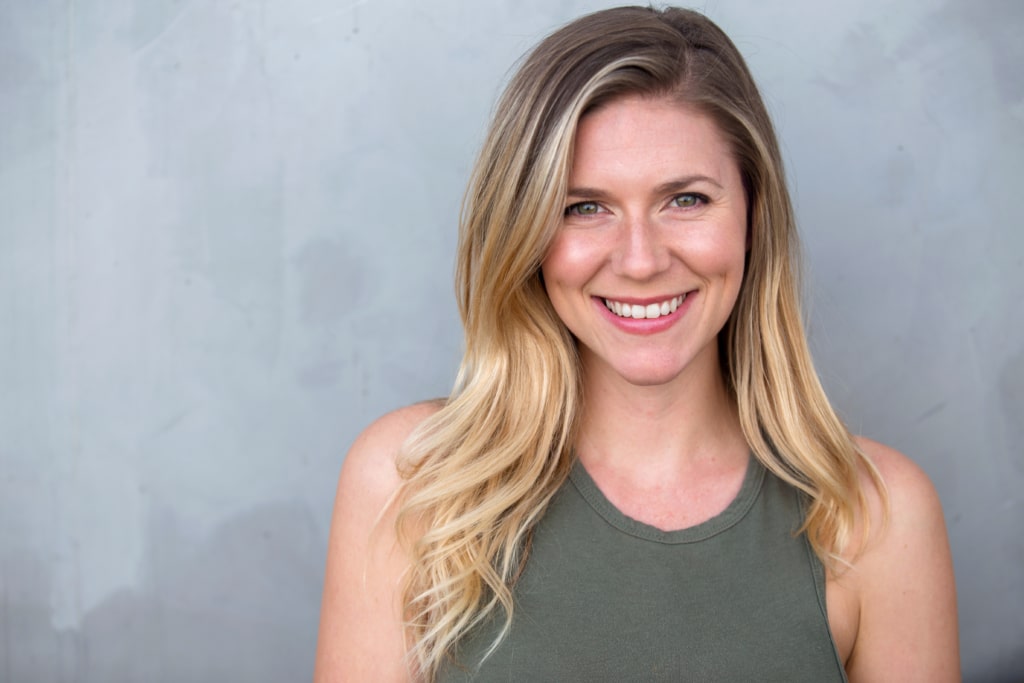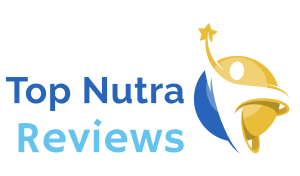Choosing the right health and wellness coaching certification can be a pivotal decision for aspiring professionals in the health coaching field. Two notable institutions offering these certifications via online courses are the American Fitness Professionals Association (AFPA) and the Institute for Integrative Nutrition (IIN). This comparison outlines how AFPA compares to IIN, providing a balanced view of their online learning experiences and highlighting unique aspects of each. Our hope is that this article helps you make the most informed decision for your health coach online education based on your interests and career goals.
Background on AFPA and IIN as Education Organizations
AFPA
AFPA has certified over 130,000 graduates in the health coaching, nutrition, and fitness space over the past 30 years. With our commitment to the highest quality holistic, evidence-based education, AFPA equips its students to maximize their impact. We set the gold standard by offering an affordable, convenient, interactive, and hands-on option on the path to becoming a health coach.
IIN
IIN started in New York City three decades ago and has since grown into a well-known organization that certifies students across the globe in nutrition and health coaching.
Online Learning
AFPA
AFPA offers a comprehensive health and wellness coach certification, designed to equip learners with the necessary skills to thrive in the wellness industry. What sets AFPA apart is its flexibility in learning modes.
Key Features:
- Hybrid Learning Model: AFPA provides a blend of online and offline resources, catering to different learning preferences. This approach ensures that students can access learning materials anytime, anywhere, while also benefiting from tangible study aids.
- Self-Paced Study: The program is structured to allow learners to progress at their own pace, making it ideal for those balancing other commitments.
- Live Hours for NBHWC Certification: For those opting for the NBHWC certification, AFPA includes required live hours, ensuring comprehensive preparation for the certification exam.
IIN
The Institute for Integrative Nutrition also offers a robust health and wellness coaching program, with a focus on holistic nutrition and wellness.
Key Features:
- Interactive Online Platform: IIN’s program is delivered through a dynamic online platform, facilitating an engaging and interactive learning experience.
- Coaching Intensive Practicum: This unique feature allows students to gain practical coaching experience, which is crucial for real-world application.
- Board Certification Preparation: Similar to AFPA, IIN provides a pathway to sit for the NBHWC exam, ensuring their graduates are well-prepared for professional certification.
Comparative Analysis
While both AFPA and IIN offer quality education in health and wellness coaching, there are subtle differences that might influence a learner’s choice.
- Learning Flexibility: AFPA’s hybrid model offers a unique advantage for those who prefer a mix of online and physical learning materials.
- Pace of Study: Both institutions provide self-paced learning, but AFPA’s structure is particularly accommodating for those juggling multiple responsibilities.
- Practical Experience: Both programs offer hands-on coaching practice with peers and faculty.
Both AFPA and IIN provide exceptional educational experiences in health and wellness coaching. AFPA’s flexible learning model and comprehensive preparation for NBHWC certification make it an attractive option for many aspiring health and wellness coaches. However, the choice ultimately depends on individual learning preferences and career goals.
The Most Comprehensive, Affordable Certification to Help You Become a Board-Certified Health Coach

Instructors
The caliber of instructors is a pivotal aspect of health and wellness coaching certifications. Both the American Fitness Professionals Association (AFPA) and the Institute for Integrative Nutrition (IIN) boast a roster of distinguished educators. Let’s explore the unique qualifications and experiences of instructors from both institutions.
AFPA’s Distinguished Instructors
AFPA’s Health and Wellness Coach Certification program features a team of highly qualified and diverse instructors, each bringing a unique perspective to the course.

Dr. Shana Walsh, PhD, NBC-HWC, MCHES
Dr. Walsh’s expertise lies in health behavior science, with a focus on the theoretical aspects of health-related decision-making. Her background as an associate professor of health education and a practicing health coach enriches the program with both academic and practical insights.

Stephanie Tingle, BS, NBC-HWC
With a Bachelor of Science in Integrative Wellness, an AFPA Holistic Nutritionist Certification, and a rich personal journey in health and wellness, Stephanie Tingle brings nearly two decades of experience in coaching. Her approach is deeply empathetic, focusing on overall health, well-being, and longevity, informed by her own transformative health journey.

Sasha Aparicio, M.S.
Sasha Aparicio’s background in Food and Nutrition Anthropology and extensive experience in various sectors, including public health and nutrition program management, adds a unique depth to the curriculum. Her multifaceted career reflects a comprehensive understanding of nutrition and health education.
IIN’s Renowned Faculty
IIN’s Health Coach Training Program is led by a team of well-known figures in the health and wellness industry, offering students exposure to various perspectives and approaches.
Gabby Bernstein
A motivational speaker, life coach, and bestselling author, Gabby Bernstein brings a wealth of experience in personal development and motivational coaching, adding a dynamic and inspirational element to the program.
Zach Bush, MD
As a Board Certified Physician and Microbiome educator, Dr. Bush offers a deep understanding of the medical and scientific aspects of health and wellness, providing students with a robust foundation in these critical areas.
Maya Feller, MS, RD, CDN
A Registered Dietitian Nutritionist and author, Maya Feller specializes in food access and food bias, offering valuable insights into the nutritional aspects of health coaching, with a focus on practical, accessible approaches to diet and nutrition.
Comparative Analysis
Both AFPA and IIN offer access to instructors with a wealth of knowledge and experience. AFPA’s instructors bring a blend of academic research and practical coaching experience, while IIN’s faculty includes renowned figures in holistic health, nutrition, and motivational coaching.
- Academic vs. Holistic Approach: AFPA’s instructors tend to have a more academic and research-oriented background, whereas IIN’s faculty are known for their holistic and integrative approaches to health and wellness.
- Diverse Expertise: Both institutions offer a diverse range of expertise, from nutrition and health behavior science to motivational speaking and integrative health practices.
The instructors at both AFPA and IIN are key to the high-quality education offered by these institutions. AFPA’s focus on applicability of the learning experience and respect of the individual from a whole-body perspective while also offering opportunities for practical coaching experience. IIN’s holistic and integrative approach provides prospective students with rich and varied learning experiences. The choice between these programs will depend on the individual’s career goals and preferred learning style.
Accreditations
AFPA’s Wide Range of Accreditations
AFPA’s programs are distinguished by an extensive array of accreditations, reflecting a commitment to high standards in health and wellness education.
Key Accreditations:
- National Board for Health and Wellness Coaching (NBHWC): AFPA’s Certified Master Health and Wellness Coach program is an approved training program, and AFPA is recognized for continuing education.
- American Naturopathic Medical Accreditation Board (ANMAB): Recognizing AFPA’s nutrition and coaching certification programs, ANMAB accreditation is a standard in the naturopathic profession.
- American Association of Drugless Practitioners (AADP): As an accredited school, AFPA graduates are eligible for additional board certification from the AADP.
- International Practitioners of Holistic Medicine (IPHM) and International Institute for Complementary Therapists (IICT): These accreditations highlight AFPA’s international recognition in holistic health coaching.
- National Association of Nutrition Professionals (NANP) and Association of Coach Training Organizations (ACTO): AFPA’s programs are approved for continuing education, demonstrating their commitment to ongoing professional development.
- American Holistic Health Association (AHHA), American Nutrition Association (ANA), and Council of Holistic Health Educators (CHHE): These memberships reflect AFPA’s alignment with holistic health education standards.
- Federation of Holistic Therapists (FHT), National Academy of Sports Medicine (NASM), and Aerobics and Fitness Association of America (AFAA): These accreditations endorse AFPA’s programs in holistic health, sports medicine, and fitness.
- American Natural Wellness Coaches Board (AANWP/ANWCB): Membership and eligibility for board certification further validate the quality of AFPA’s programs.
IIN’s Accredited Programs
IIN’s programs are accredited by well-respected organizations, emphasizing their commitment to quality health coach training.
Key Accreditations:
- National Board for Health and Wellness Coaching (NBHWC): IIN’s Coaching Intensive Practicum 2.0 is an approved program, enabling graduates to apply for the Health & Wellness Coach Certifying Examination.
- Qualifi: Recognizing IIN’s Health Coach Training Program with UK and US academic credits.
- International Coaching Federation (ICF): IIN’s Coaching Intensive Practicum is an ICF-accredited Continuing Coach Education Program.
- The Health Coach Alliance (HCA) and International Association of Health Coaches (IAHC): These affiliations offer graduates opportunities for professional growth and certification.
- Health Coaches Australia and New Zealand Association (HCANZA) and UK International Health Coach Association (UKIHCA): These approvals highlight IIN’s international recognition and ongoing efforts to meet evolving standards in health coaching.
Comparative Analysis
Both AFPA and IIN are well-accredited, but they differ in their focus and range of accreditations. AFPA’s extensive list of accreditations emphasizes a broad approach, covering various aspects of health, wellness, and fitness. In contrast, IIN’s accreditations are more focused on integrative nutrition and health coaching, with a strong international presence.
The accreditations of AFPA and IIN underscore their dedication to providing high-quality education in health and wellness coaching. AFPA’s diverse accreditations reflect a comprehensive approach to health and wellness education, while IIN’s focus on integrative nutrition and health coaching is evident in their specific accreditations. Prospective students should consider these accreditations in light of their career goals and interests in the health and wellness field.
Prerequisites
AFPA’s Prerequisites
AFPA’s Master Certified Health and Wellness Coach program is designed for individuals who are committed to excelling in the health coaching field. The prerequisites for this program ensure that students are adequately prepared for the comprehensive education it offers.
Key Requirements:
- Age Requirement: Applicants must be at least 18 years old, ensuring a level of maturity and responsibility conducive to professional development.
- English Language Proficiency: A solid understanding of the English language is crucial, as all course materials, lectures, assessments, and live course components are in English.
Meeting these prerequisites allows students to embark on a transformative educational journey with AFPA, covering a wide range of topics in health coaching.
IIN’s Prerequisites
IIN’s approach to prerequisites focuses more on the individual’s passion and commitment to health and wellness, rather than specific academic qualifications.
Key Requirements:
- Educational Background: A high school diploma, GED, or equivalent is required, making the program accessible to a broad range of applicants.
- Passion and Determination: IIN emphasizes the importance of a strong interest in health and wellness, a desire for personal and professional transformation, and the ambition to make a positive impact in the world.
These prerequisites are designed to ensure that students entering the program are motivated and ready to succeed in the dynamic field of health and wellness coaching.
Comparative Analysis
The prerequisites for AFPA and IIN reflect their respective focuses and educational philosophies. AFPA’s prerequisites ensure that students have a foundational level of maturity and language proficiency, essential for a comprehensive and professional-level education.
Prospective students should consider these prerequisites in light of their own educational background and career aspirations. AFPA’s program is ideal for those who meet the age and language requirements and are seeking a structured and comprehensive education in health coaching.
Course Comparison
AFPA’s Course Structure
AFPA’s program is divided into two main courses, each designed to provide a thorough understanding of health coaching.
Self-Study Health Coaching Course: Comprehensive Modules
- Module 1 – What is Health Coaching?: This module covers the definition, significance, credentialing, and scope of practice in health coaching.
- Module 2 – Coaching Structure: Focuses on planning and executing a health coaching program, including initial setup, conducting sessions, and program conclusion.
- Module 3 – Coaching Process: Teaches effective communication techniques, health behavior change theory, and motivational interviewing, supplemented by real coaching session observations.
- Module 4 – Whole Person Health: Addresses non-communicable diseases (NCDs), physical activity, nutrition, sleep, stress, and holistic wellness.
- Module 5 – Ethics and Legal Considerations: Covers professional conduct, ethical guidelines, and legal recommendations for health coaches.
Follow-Up Course: Advanced Health Coaching Intensive [Live]
This live course, conducted via Zoom, emphasizes applied skills in health coaching, offering accountability, community, and personalized attention from experienced coaches.
Over the course of 12 weeks you will learn everything from the current trends in health coaching and conducting the initial coaching session to asking powerful questions, using affirmations, visualizing success, and professional conduct at large.
IIN’s Course Structure
IIN’s program is structured into 40 modules, with a focus on integrative health, nutrition, and lifestyle, culminating in a practicum for practical application.
Modules 1-40: Comprehensive Learning
- Modules 1-10: Introduction to IIN’s approach to integrative health, including core concepts like bio-individuality and primary/secondary food.
- Modules 11-20: Functional medicine perspective on multidimensional disease and dysfunction and understanding body system interconnectedness.
- Modules 21-30: Personalizing nourishment through dietary and supplemental supports and exploring multiple nutritional perspectives.
- Modules 31-40: Universal health and nutrition concepts, spiritual nourishment, community impact, and finalizing a transformation or business plan.
IIN Practicum: Coaching Intensive Practicum
This practicum is designed to enhance coaching skills and fulfill education requirements for the NBHWC board certification exam.
Comparative Analysis
Both AFPA and IIN provide in-depth and structured learning experiences, but their approaches and content focus differ.
- AFPA’s Approach: Emphasizes a blend of theoretical knowledge and practical application, with a strong focus on the coaching process, whole person health, and professional ethics.
- IIN’s Approach: Offers a broad integrative perspective on health and wellness, covering functional medicine, nutrition, and spiritual aspects, along with a comprehensive practicum.
Prospective students should consider these course structures in light of their learning preferences and career goals. AFPA’s program is well-suited for those seeking a balanced approach between theory and practice, with a strong emphasis on ethical and professional standards. IIN’s program, on the other hand, is ideal for individuals interested in a holistic and integrative approach to health and wellness, with a comprehensive exploration of various health and nutrition theories.
Cost Comparison
AFPA’s Competitive Pricing
AFPA stands out for offering one of the most affordable yet high-quality health and wellness coaching certifications in the market.
Program Costs:
- Certified Health and Wellness Coach Program: The regular price is $1049, but it is currently on sale for $949 (as of the time of publication; please check the website for current pricing). This self-study program provides foundational training in health and wellness coaching.
- Advanced Health Coaching Intensive [Live]: The regular price is $2499, but it is currently on sale for $1949 (as of the time of publication; please check the website for current pricing). This live, community-oriented class is for those seeking advanced coaching skills.
- Certified Master Health and Wellness Coach (Bundle Option): Including the Certified Health and Wellness Coach foundational program plus the Advanced Health Coaching Intensive [Live], the normal price is $3548. However, it is currently on sale for $2898 (as of the time of publication; please check the website for current pricing). This comprehensive option offers extensive training, balancing affordability with in-depth learning. Students who successfully complete the Certified Master Health and Wellness Coach program and meet any other necessary requirements are eligible to sit for the NBHWC Board Certification Exam.
AFPA’s pricing reflects a commitment to making quality health coaching education accessible, ensuring that students receive up-to-date and comprehensive training without the high cost barrier.
IIN’s Pricing Structure
IIN’s programs, known for their integrative and holistic approach, are priced to reflect the breadth of their training content.
Program Costs:
- The Health Coach Training Program™: This program is regularly priced at $5995, offering a complete training experience in health and wellness coaching.
- Coaching Intensive Practicum: Available for $1500, this program is for those seeking advanced coaching skills.
- Bundle Option: Normally priced at $7495, the bundled option for both programs is currently offered at a reduced cost of $5745 (as of the time of publication; please check the website for current pricing). Students who successfully complete both components of this bundle and meet any other necessary requirements are eligible to sit for the NBHWC Board Certification Exam.
Comparative Analysis
AFPA and IIN both offer comprehensive training programs, but AFPA’s pricing structure is particularly notable for its affordability. This aspect of AFPA’s programs makes them an attractive option for those seeking quality education in health and wellness coaching without the high financial commitment. IIN’s higher pricing aligns with its extensive and integrative approach, suitable for those who prioritize a broad, holistic educational experience.
The choice between AFPA and IIN will depend on individual financial considerations and training preferences. AFPA’s programs are not only among the most affordable in the market but also maintain a high standard of quality and relevance, making them an excellent choice for those seeking value and comprehensive education. IIN, with its higher cost, offers an expansive and integrative approach, appealing to those looking for an in-depth exploration of health and wellness coaching.
NBHWC Practice Exam with Enrollment
AFPA’s Inclusion of NBHWC Practice Exam
AFPA offers a notable benefit for its students by including a practice exam for the NBHWC certification as part of the enrollment in their programs.
Key Advantage:
- Preparation for Certification: The inclusion of an NBHWC practice exam with AFPA’s program enrollment provides students with a valuable tool to gauge their readiness and familiarize themselves with the format and content of the actual certification exam. This addition can significantly enhance a student’s confidence and preparedness for obtaining their certification.
IIN’s Approach
The Institute for Integrative Nutrition (IIN) does not currently offer an NBHWC practice exam as part of its program enrollment.
Consideration:
- Independent Preparation: Students enrolled in IIN’s programs may need to seek external resources or practice exams to prepare for the NBHWC certification. While this requires additional effort, it allows students to tailor their preparation to their individual needs.
Comparative Analysis
The availability of an NBHWC practice exam is a distinct feature that sets AFPA apart in its program offerings. This inclusion demonstrates AFPA’s commitment to thoroughly preparing its students for the certification process and their future careers as health and wellness coaches.
- AFPA’s Comprehensive Preparation: By including an NBHWC practice exam, AFPA enhances the value of its program, offering students an integrated approach to certification preparation.
- IIN’s Flexibility in Preparation: While IIN does not include a practice exam, this approach allows students the flexibility to choose their own methods of preparation, which can be beneficial for those who prefer a more self-directed study process.
For prospective students aiming for NBHWC certification, the inclusion of a practice exam in AFPA’s program can be a significant advantage, offering a comprehensive and integrated approach to exam preparation. In contrast, IIN’s approach requires students to independently source practice materials, which may suit those who prefer a more self-guided preparation journey.
Post Certification Support and Resources
Post-certification support and resources are crucial for health and wellness coaching graduates as they embark on their professional journeys. Both AFPA and IIN offer unique support systems and communities to assist their graduates.
AFPA’s Post-Certification Support
AFPA offers a range of support services and resources to its graduates, emphasizing continuous professional development and community engagement.
Key Resources:
- Enrollment Specialist Support: AFPA provides ongoing support through enrollment specialists who are available to assist with questions about board certification and courses, ensuring graduates have the guidance they need.
- Dynamic Online Community: AFPA’s online community for graduates offers a platform for networking, sharing experiences, and staying updated on industry developments.
- AFPA Blog: AFPA maintains a blog that provides valuable information, tips, and insights relevant to health and wellness coaching on a regular basis.
IIN’s Post-Certification Support
IIN provides its graduates with access to a vibrant community and a platform for continuous learning and networking.
Key Resources:
- IINsiders Community Program: This program connects the IIN and Chopra communities, allowing graduates to share their passion for health and wellness. Members can earn rewards for referring new students to IIN and Chopra programs, fostering a sense of community and collaboration.
- IIN Blog: The blog serves as a resource for ongoing education and inspiration, featuring articles on various health and wellness topics.
Comparative Analysis
Both AFPA and IIN recognize the importance of post-certification support and have established resources to aid their graduates’ professional growth.
- Community and Networking: IIN’s IINsiders Community Program focuses on building a network of passionate health and wellness advocates, offering rewards for community engagement and referrals.
- Direct Support and Industry Insights: AFPA emphasizes direct support through enrollment specialists and fosters a community for professional development and industry updates.
The choice between AFPA and IIN for post-certification support will depend on what type of resources and community engagement a graduate values. IIN offers a unique opportunity for graduates to engage in a larger community and benefit from referral rewards, while AFPA provides more direct support and resources for navigating the evolving landscape of health coaching. Both institutions ensure their graduates are not only well-prepared but also well-supported as they advance in their careers.
Why Choose AFPA to Become a Board Certified Health and Wellness Coach
For individuals seeking to become board-certified health and wellness coaches, the American Fitness Professionals Association (AFPA) offers an exceptional pathway through its Certified Master Health and Wellness Coach program. Here are key reasons why this program stands out as a great choice:
Comprehensive and Practical Curriculum
AFPA’s program is meticulously designed to cover all essential aspects of health and wellness coaching. It includes:
- Diverse Modules: The program encompasses a range of topics from foundational health coaching concepts to advanced coaching techniques, ensuring a well-rounded education.
- Practical Application: With modules focusing on the coaching process, including real coaching session observations, students gain practical skills that are directly applicable in real-world scenarios.
Affordable and Accessible Education
AFPA is committed to providing quality education that is both affordable and accessible:
- Competitive Pricing: The program is one of the most cost-effective options in the market, making quality education in health and wellness coaching accessible to a wider audience. Plus, payment plans are offered.
- Flexible Learning: The program’s structure caters to various learning preferences, accommodating those who need to balance other commitments.
Expert-Led Instruction
The program boasts a team of experienced and knowledgeable instructors:
- Qualified Professionals: Instructors in the program are experts in their respective fields, bringing a wealth of practical and academic experience to the classroom.
- Personalized Mentorship: The program emphasizes one-on-one guidance, ensuring that students receive the support and attention they need to succeed.
Accreditation and Certification Readiness
AFPA’s program is recognized by several reputable organizations, enhancing its credibility:
- Broad Accreditation: The program is accredited by various bodies, reflecting its adherence to high educational standards.
- NBHWC Practice Exam: Including a practice exam for the NBHWC certification, the program uniquely prepares students for the certification process.
Supportive Community and Resources
Post-certification, AFPA offers a supportive network and resources:
- Ongoing Support: Enrollment specialists provide continuous support, addressing any queries related to board certification and the evolving industry.
- Engaging Online Community: Graduates become part of an active online community, fostering professional growth and networking opportunities.
Main Takeaways
Choosing AFPA’s Certified Master Health and Wellness Coach online course offers a blend of comprehensive education, practical skills, expert instruction, and post-certification support. Its affordability and flexibility make it an attractive option for a wide range of students, from those just starting in the field to seasoned professionals looking to enhance their credentials. The program not only prepares students for board certification but also equips them with the tools and knowledge to thrive in the dynamic field of health and wellness coaching.

The Most Comprehensive, Affordable Certification to Help You Become a Board-Certified Health Coach





